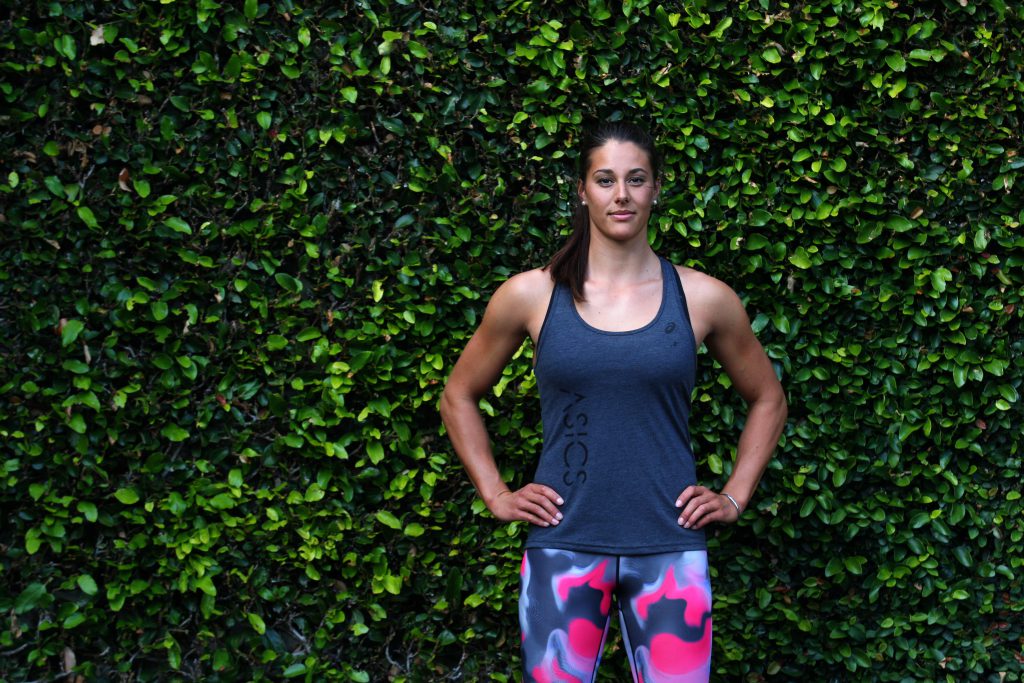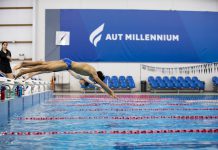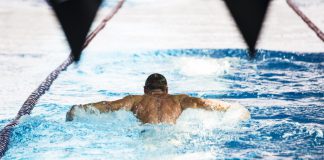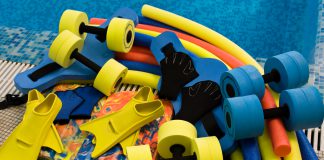We all want to do our best while we train.
When you end your workout or finish up a competitive sports match knowing you could have put more into your performance, that slight twinge of guilt is never too far behind. That mysterious internal voice is already saying: “You could have pushed harder”.
Yet, how do you power through your workout when your body doesn’t feel as strong as it did yesterday or last week? How do you push through those patches where your goal feels a little too far from reach?
Your mind is your powerhouse
Making it to the next step in your fitness journey comes down, in part, to mental focus.
Developing techniques to help get your thinking right, means your body can follow. Professional athletes and personal trainers know this. They also know small gains or “wins” are the progress markers you should use to propel yourself forward. Especially when injuries set temporary limits.
Beyond fine tuning your mental focus, you still need to listen to your body. Reducing or even completely quieting physical distractions lets you pay attention to what matters most: your breathing, your movement, your goal.
So, how you do you support your mind for better focus which creates better performance? We’ve got some tips to help get you started:
Mind over matter: 5 tips for better sports performance
1) Start setting realistic goals.
Remember: what matters is you. Setting goals means working toward a fitness goal you feel comfortable with. A goal you can achieve based on your ability, time, and effort. Stop competing with your mate or that “really fit” guy or girl at the gym.
Sir Edmund Hillary, New Zealand mountaineer, got it right when he said: “It’s not the mountain we conquer but ourselves”.
While having a goal to reach for is a great start, most fitness coaches and sports psychologists will tell you the best way forward is to break your training down into manageable pieces.
Think about it like this: you aim to complete an endurance event in a set amount of time. This number represents your personal best. And you want to tackle the biggest challenge on offer — a triathlon made up of a 1500m swim, a 40km mountain bike ride, followed by a 10km run.
Signing up for this event and “ just going for it” may leave you feeling disappointed later. While your fitness level may be high, your goal is focused solely on the final outcome: setting a personal record. Second, you’ve left out many important stepping stones or smaller goals that will help you focus on making incremental performance improvements.
Map out a realistic plan. Build towards completing such a challenge 1 kilometre at a time. Use those small wins to help you gauge your training progress.
For example, a small training win for the mountain biking portion of the event might be riding sets at 50 to 65rpm with high pedal force. Your goal is to focus on the feel of each correct pedal rotation instead of simply pushing downward on the pedals.
You may also strive to improve your swimming skills. Another small win would be perfecting how you swim paces so you know how fast you’re swimming distances. Further, swimming consistent times is a milestone to achieve before focusing on bettering your speed.
2) Try visualisation and positive self-talk
Carl Lewis, Olympic track and field athlete once said:
“My thoughts before a big race are usually pretty simple. I tell myself: Get out of the blocks, run your race, stay relaxed. If you run your race, you’ll win… channel your energy. Focus.”
Using visualisation or imagery can help you fine tune mental focus for better performance.
As the understanding about the impacts of mental training for sports has increased, so have the number of professional athletes using visualisation. The New York Times has reported on Olympic athletes using this practice to help them cope with distractions or unexpected events when they need to perform. Visualisation is also thought to create more consistent performance for these pro athletes.
Visualising success means achieving it.
According to Steven Ungerleider, PhD and author of “Mental Training for Peak Performance (2013)”, the better the visuals, the better your result. As you picture the steps you’ll go through to achieve your goal, use words that capture the rest of your senses — touch, smell, and sound.
When you hit the gym, are you thinking about which weights you’ll use or how many reps you’ll complete? What about the quality of your technique? How will your feet, knees, back and shoulders be positioned? What does a successful lift feel like? Can you smell the chalk you’ve put on your hands? Can you hear the weights clank together as you add more weight? Are you thinking about finishing your training session, feeling like a better, stronger version of yourself?
Visualisation also helps keep emotions in check, so you can overcome or control emotions like anxiety.
If thinking about 10 repetitions of a movement seems overwhelming, only think about completing one repetition to the best of your ability (this ties back to breaking down your goals). Make each rep as strong as it can be. What matters is you give it your all while staying focused on your task.
Words hold power, too.
We’ve all got an inner monologue going on. Yet, have you ever stopped to fully consider WHAT sorts of things you say to yourself? Positive self-talk is a great way to build your self-confidence and remove limits you’ve created for yourself.
Stop telling yourself, you can’t or you’re not up to the task at hand. Instead, use self-talk to boost your concentration and focus by using words that help you focus on what needs to be done.
Use words that help you focus on the present, such as “lift” or “jump” and use words that capture the mood of successful performance like “sprint” or “drive forward”. There may also be times where positive phrases are needed to help you with endurance — so, tell yourself to “stick at it” or “push on”.
If you tell yourself you’re the best, you behave like the best. So, when you talk to yourself, use words that are positive and repeat phrases that you find motivational.
3) Stay in the moment
The ability to remain in the present holds incredible power for improving your performance — and your life.
If you can remain focused on what you need to do, right now, you’re on your way to success. Ignore the ringing cell phone and finish your set of repetitions. Block out the cheers of onlookers as you score points for your team.
If you let yourself get distracted by what happened just before your workout or what you’re going to have to do after your workout, your attention is somewhere else. And your performance will dip.
4) Take stock and breathe deeply
How does you your body feel? Are you carrying tension in areas where you should be relaxed? Are you feeling pain beyond the “good pain” of using your
Knowing what’s normal for you and what’s not is the first step. If you’re feeling good, stay focused on your movement. Complete one strong rep with good control, then move on to the next one.
Remember to breathe.
Taking 10 minutes before training to centre yourself can help you focus for better performance. Breathing exercises reduce tension, allow you to shift your focus away from negative thoughts or stress, and naturally lead into visualisation and/or positive self-talk. You can also choose to do some stretching or listen to music for relaxation — it’s about what works best for you.
Armed with a sense of calm and the mental focus created by adding these steps to your pre-training routine, you may surprise yourself by powering through the most demanding moments of your workout.
 As Kayla Imrie, New Zealand Olympic kayaker, said: “If it was easy, everybody would do it. Trying to make it to the top is never going to be an easy job. There’s always going to be highs and lows.”
As Kayla Imrie, New Zealand Olympic kayaker, said: “If it was easy, everybody would do it. Trying to make it to the top is never going to be an easy job. There’s always going to be highs and lows.”
You have to find a way to push through tough moments to get to your goal.
5) Remove distractions with the right gear
Wearing the right clothing makes a huge difference.
As Muhammad Ali once said: “It isn’t the mountains ahead to climb that wear you out; it’s the pebble in your shoe’.
If you go for a run and mother nature offers up wind and rain, what keeps you feeling warm and dry? The right gear.
Sportswear that keeps your body feeling comfortable contributes to better mental focus. This may sound odd, but if you think about the number of times you’ve had to adjust your clothing during your workout or you felt too wet and too uncomfortable to keep going, you’ll know this is true.
These physical distractions prevent you from staying focused on your goal. They stop you from pushing as hard as you can.
A zero-distraction workout is a great workout — one with unparalleled mental focus.
Next time, skip the cotton tee that holds sweat or the hoodie that keeps you just a bit too warm. Wear sports clothing that wicks sweat away to keep you dry, supports your body’s natural cooling process, and allows you to bend and flex however you need.
Put your mind to work
If you decide to get out of bed in the morning and go for a run, your body has to follow. If you choose to wear sports clothing that will keep you comfortable, you’re preparing to focus. If you can visualise running for 5 km despite a little wind and rain, you’re on your way to success.
If you use your focus to give it all you’ve got during your last 1km, your legs will carry you one step closer to your goal.
This post is possible thanks to ASICS New Zealand. ASICS offers performance sports clothing for men and sports clothing for women that keeps you looking and feeling great. The 2017 ASICS collection is now available online.





































